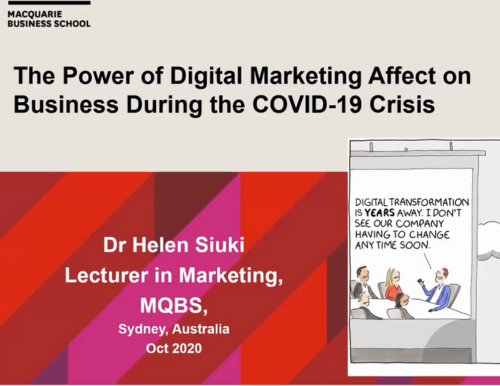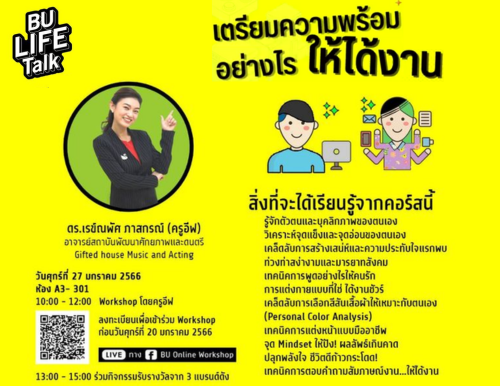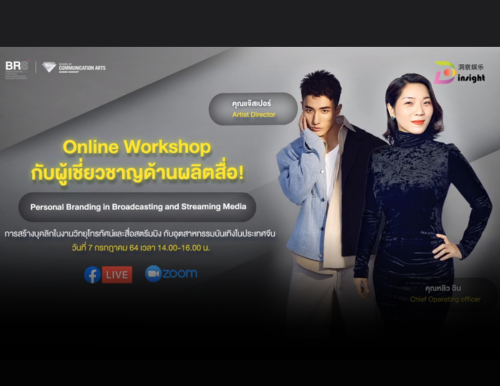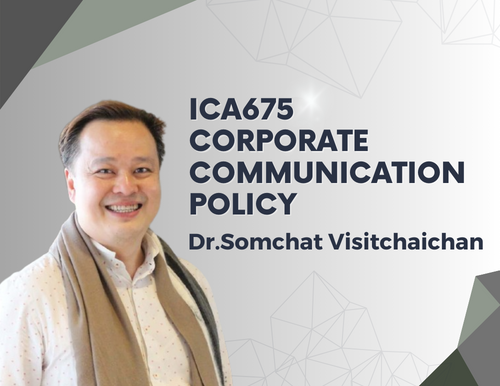Analytical Thinking และ Conceptual Thinking เป็นทักษะทางความคิดที่สำคัญในหลายด้านของการทำงานและการแก้ปัญหา ทั้งสองทักษะนี้มักจะใช้ร่วมกันในสถานการณ์ที่ซับซ้อน ซึ่ง Analytical Thinking จะช่วยในการทำความเข้าใจและแยกแยะปัญหา ขณะที่ Conceptual Thinking จะช่วยในการมองภาพรวมและหาวิธีการแก้ปัญหาในระดับที่สูงขึ้น โดย ดร.จิราพร เกิดชูชื่น
The COVID-19 pandemic significantly impacted businesses worldwide, and digital marketing played a crucial role in helping companies adapt and survive during the crisis, and some key effects of digital marketing on businesses during the COVID-19 pandemic By Siuki, Helen
การบรรยายเกี่ยวกับการใช้ข้อมูลความต้องการของลูกค้า (Customer Insight) นำมาพัฒนาเป็นผลิตภัณฑ์และบริการใหม่ของพฤกษา เพื่อตอบสนองไลฟ์สไตล์ยุคใหม่และเทรนด์ความใส่ใจด้านสุขภาพและการใช้ชีวิตในยุคโควิด โดย Kamolsri Autsawaphakorn
Brexit has significant political, economic, and social implications for both the UK and the EU, as it involves the renegotiation of various agreements, such as trade, immigration, and security. By Prof. Dr. Holger Paschedag from Aschaffenburg University of Applied Sciences (UAS)
เรียนรู้จักตัวตนและบุคลิกภาพของตนเอง วิเคราะห์จุดแข็งและจุดอ่อนของตนเอง เคล็ดลับการสร้างเสน่ห์และความประทับใจแรกพบ ท่วงท่าสง่างามและมารยาทสังคม เทคนิคการพูดอย่างไรให้คนรัก เคล็ดลับการเลือกสีสันเสื้อผ้าให้เหมาะสมกับตนเอง เทคนิคการแต่งหน้าแบบมืออาชีพ และเทคนิคการตอบคำถามสัมภาษณ์งาน
การเปิดประสบการณ์ให้กับนักศึกษาได้ฝึกทักษะทางด้านการสร้างบุคลิกในงานวิทยุโทรทัศน์และสื่อสตรีมมิง กับอุตสาหกรรมบันเทิงในประเทศจีน
Lecture ICA675 Corporate Communication Policy
By Dr.Somchat Visitchaichan
Lecture Date:
Sunday 16 February 2020
1.00 p.m. - 6.30 p.m.
There are 3 parts.
Lecture ICA675 Corporate Communication Policy
By Dr.Somchat Visitchaichan
Lecture Date:
Sunday 16 February 2020
1.00 p.m. - 6.30 p.m.
There are 3 parts.
Lecture ICA675 Corporate Communication Policy
By Dr.Somchat Visitchaichan
Lecture Date:
Sunday 16 February 2020
1.00 p.m. - 6.30 p.m.
There are 3 parts.
Lecture ICA675 Corporate Communication Policy
By Dr.Somchat Visitchaichan
Lecture Date:
Saturday 1 February 2020
9.00 a.m. - 12.00 p.m.
and 1.00 p.m. - 6.30 p.m.
There are 5 parts.







